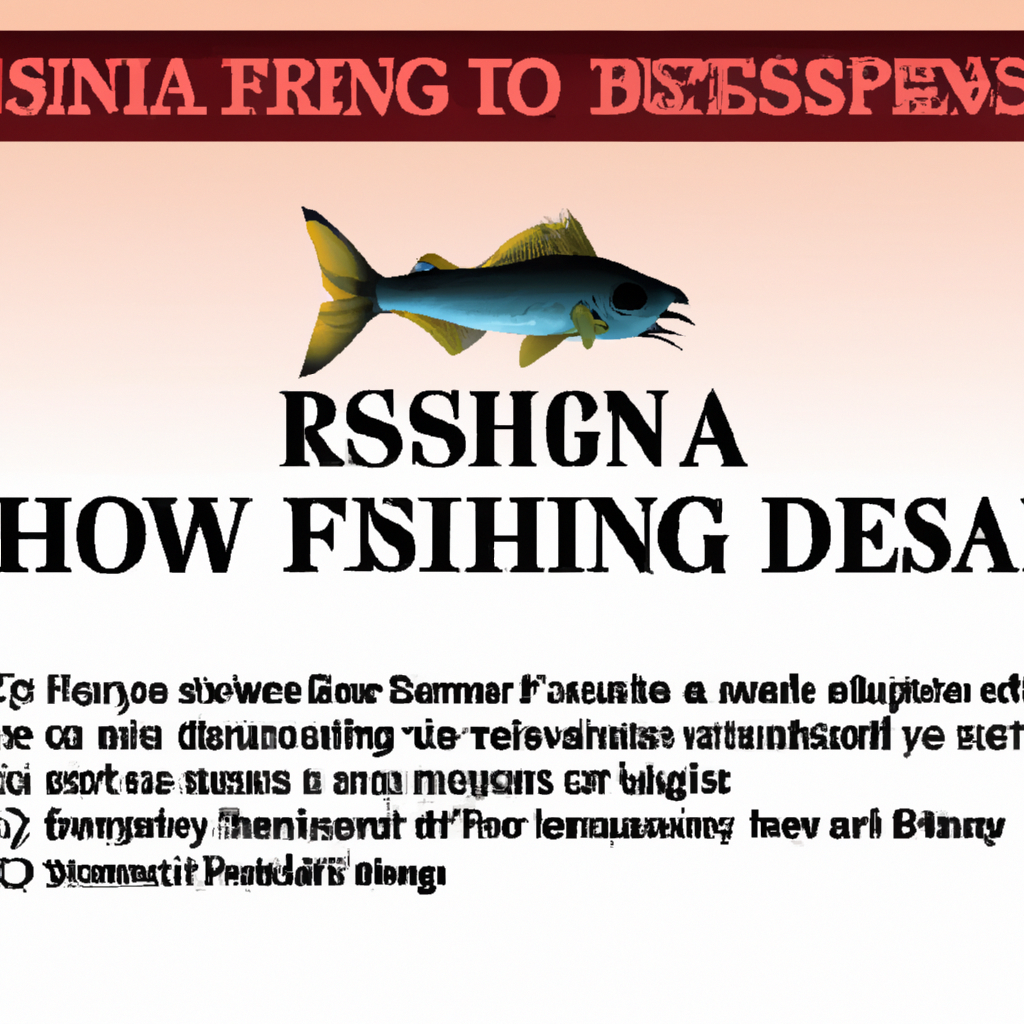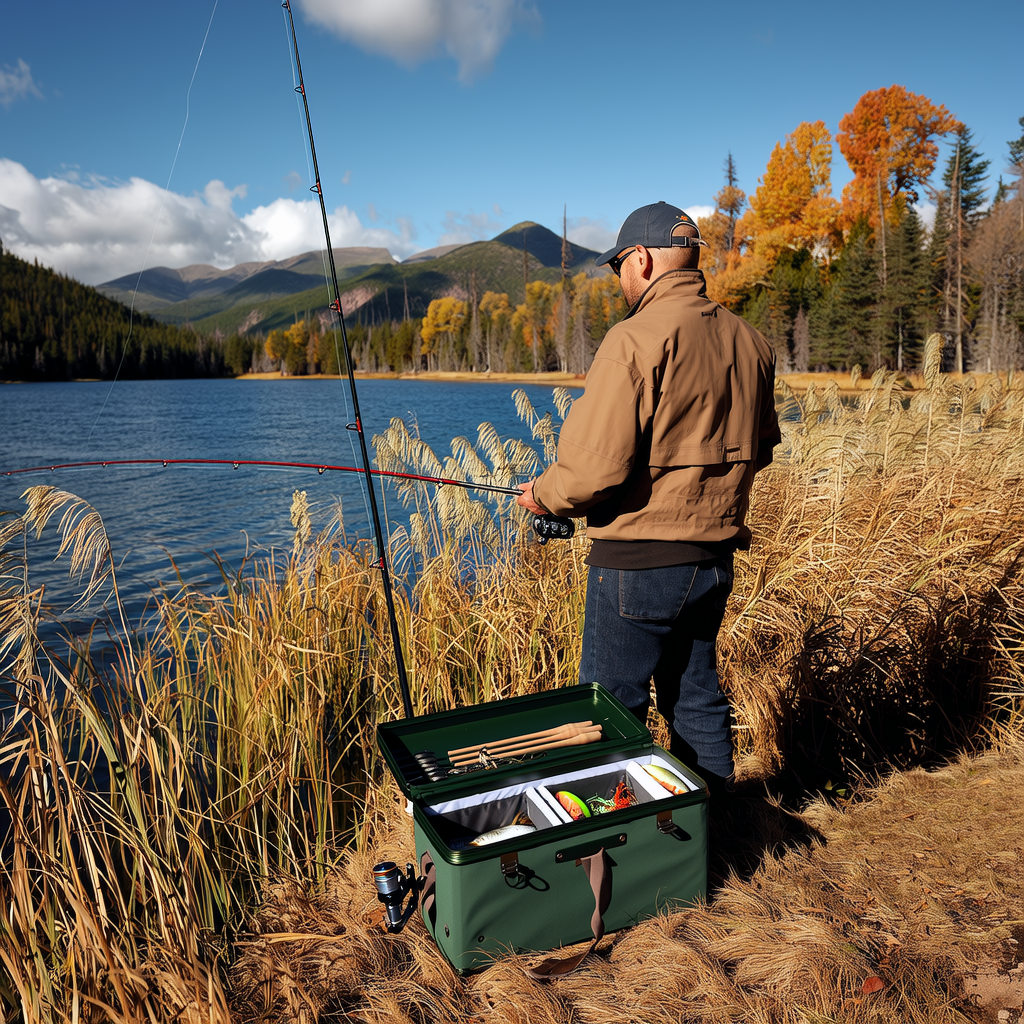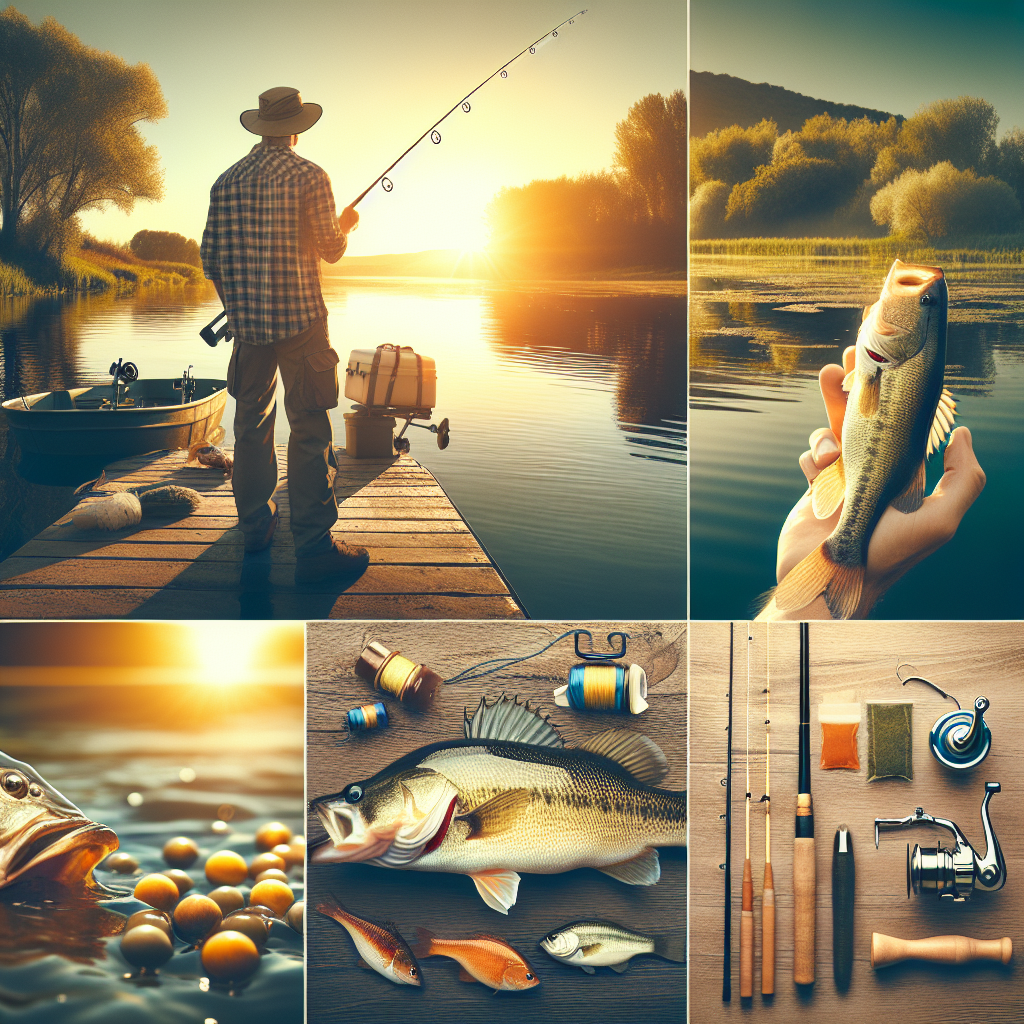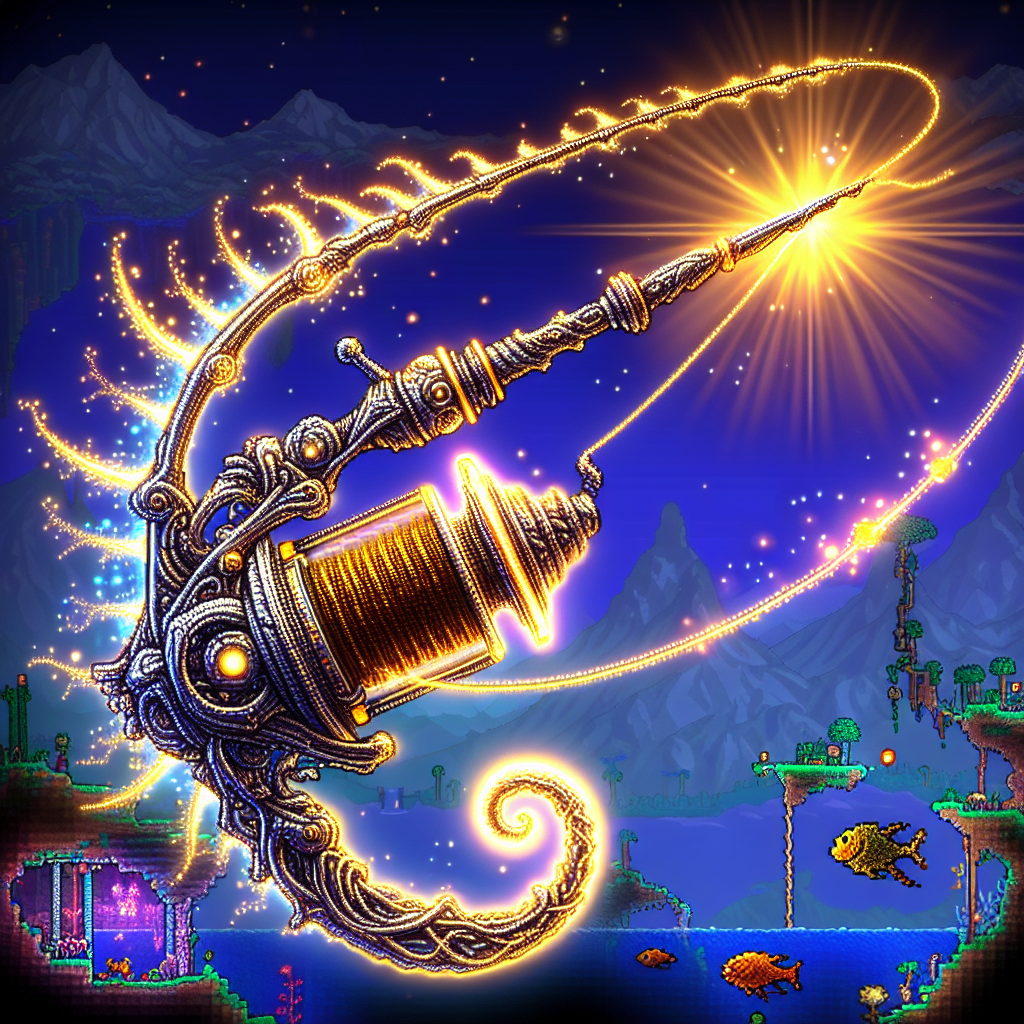A fishing license is the first step that anglers should take to enjoy all of the fishing opportunities in Arizona. A fishing license is required for all residents and non-residents to ensure compliance with the Arizona Game and Fish Department’s (AZGFD’s) regulations and to protect the state’s natural resources and fish populations.
1. Why do you need a fishing license in Arizona?
Arizona’s fishing licence requirement aims to conserve and protect fish populations, their habitats and healthy ecosystems. It also provides sustainable recreational opportunities for present and future generations of anglers.
Who needs a fishing license?
According to the AZGFD regulations, anyone over 10 years old must have a valid fishing licence in order to fish legally in Arizona. This applies to residents and non-residents.
3. There are different types of fishing licenses available
Resident Fishing Licences
Arizona residents have a variety of options when it comes to fishing licenses.
General Fishing License
This license allows you access to all waters that are legally accessible within the state. This license covers both general and urban areas.
Youth Combination Hunt and Fish License
This license is designed for young anglers between the ages of 10 and 17 years. It grants fishing privileges as well as hunting privileges on small game animals and fur-bearing creatures.
Pioneer License
This lifetime fishing license can only be obtained by Arizona residents who are 70 years old or older and have lived in Arizona continuously for 25 years.
Non-Resident fishing licenses
You can choose between the following fishing licenses if you are visiting Arizona from a different state or country.
Combination License for Fishing
This license allows you to fish in all state waters and also includes hunting privileges and small game.
Short-Term Combo License
This license is designed for anglers who are visiting Arizona for a short period of time. It is valid for 1 day and allows fishing and hunting.
Short-Term Non Resident Fishing License
This license is ideal for visitors who want to fish in Arizona for one day.
4. How to Buy a Fishing License
The AZGFD provides several convenient ways to obtain a fishing permit in Arizona.
Online Shopping
Visit the official AZGFD site and navigate to the section on fishing licenses. Follow the instructions and fill out all the necessary details. Select the desired license type. Pay using your credit or debit card.
Phone Call
Call the AZGFD Customer Service number and provide all the necessary details over the telephone. Once the payment has been made, they will guide you through the entire process and issue your fishing licence.
In-Person
AZGFD, licensed license dealers and sporting goods stores sell fishing licenses across Arizona. Locate a vendor near you, provide all the information needed, and buy your license there.
5. Fishing license fees in Arizona
The fee for a fishing license depends on a number of factors, including residency, age and the type selected. Below are some examples for fishing license fees in Arizona.
Resident License Fees
General Fishing License
- Age 18-64 $37
- Age 10-17: $5
Youth Combination Hunt and Fish License
- Age 10-17: $5
Pioneer License:
- Lifetime License: $50
b. Non-Resident License Fees
Fishing Combination License
- 1 Day: $20
- 5 Days: $40
- Season: $118
Short-Term Combo License:
- 1 Day: $20
Short-Term Non Resident Fishing License
- 1 Day: $20
6. Age Exemptions For Fishing Licenses
Despite the fact that individuals over 10 years old are required to have a fishing licence, there are several exceptions for certain situations. These exemptions include:
Free Fishing Events
Individuals of any age are allowed to fish without a fishing license on designated Free Fishing Days. These days are usually announced by the AZGFD.
Private Waters
You may not need to have a fishing license if you are fishing in waters that belong to a private owner. It’s important to confirm ownership and any fishing restrictions before you go.
Arizona Disabled Veteran Combination Fish and Hunt License
Arizona residents who have been rendered 100% disabled by military service are entitled to a free combination hunting and fishing license.
7. Validity of fishing licenses and their expiration
In Arizona, fishing licenses are usually valid for a full year after the date of purchase. A fishing license purchased through the Arizona Game and Fish Department’s website is valid for ten days after the date selected.
8. Regulations and Restrictions
To ensure the long-term preservation of fish populations and habitats, it is important to follow the rules and regulations set by AZGFD when fishing in Arizona.
Fishing Seasons
Certain species or waters may have specific fishing seasons. To stay informed of seasonal restrictions, it is important to review the AZGFD Fishing Regulations Guide.
Fishing Limits
It is illegal to exceed the catch limits for certain species. The AZGFD Fishing Regulations Guide provides detailed information on catch limits for each species.
Size Restrictions
Some fish species have a size restriction, which means you can only keep fish over a certain length. Always measure your catch and, if it is smaller than the specified size limit, return it to the water.
Fishing Methods
In some areas, certain fishing methods such as nets or traps may be prohibited or restricted. Check the fishing regulations guide before you start fishing to make sure that you are following legal methods.
9. Special Fishing Tags and Permits
Anglers may also need to have special tags or permits in certain situations.
Colorado River Special Use Stamp
You must purchase a Colorado River Stamp if you plan to fish the Colorado River between Davis Dam upstream and the downstream boundary Havasu National Wildlife Refuge.
Apache Trout Stamp
You must purchase an Apache Trout Stamp if you plan to fish for Apache Trout, a protected and unique species found only in Arizona.
Glass Containers in Trout Waters
Glass containers are prohibited for anglers fishing on designated trout waters, except for prescription medication containers and fishing bait containers that are properly stored.
10. Reporting Your Catch
Reporting your catch in Arizona is an important part of fisheries control. AZGFD collects data through catch reporting to monitor fish populations and inform decisions. Visit the AZGFD site to learn how and when you should report your catch.
11. Border States Agreements
Arizona has agreements with neighboring states that ensure anglers can fish in Arizona waters if they meet certain conditions. Arizona currently has reciprocity agreements in place with California, Nevada New Mexico and Utah.
12. Fish Identification
Arizona is home to a variety of fish species, both indigenous and introduced. Understanding fish identification is important to comply with fishing laws and avoid unintentional captures. Familiarize your self with the most common species of fish in the area you plan to fish.
13. Urban Fishing Program
Arizona’s Urban Fishing Program offers convenient fishing opportunities for anglers by stocking fish into urban lakes and ponds. This program is perfect for anglers that prefer to fish closer to home or within city limits. It offers a chance to catch game fish without having to travel far.
14. Reel Deals Program
The AZGFD offers discounts and special promotions on fishing licenses every year. You can save money by keeping an eye on the department website and newsletters.
15. Educational Resources
The AZGFD provides a wealth of educational materials for both novice and experienced fishermen. These resources, which include fishing clinics, workshops and informative guides and articles can help you improve your fishing knowledge.
16. Conservation Initiatives
Arizona is committed to conserving its fish populations and their habitats. Anglers can help ensure the long-term sustainability and health of Arizona’s fisheries by participating in these initiatives. Keep up to date on conservation projects and how you can participate.
17. Fishing Etiquette & Ethics
Following regulations is not enough to be considered responsible fishing. Enjoy your time on water by practicing good fishing etiquette. Respect the environment and be aware of other anglers. Be considerate of your surroundings and leave the fishing spot in a better condition than when you arrived.
18. Fishing Safety Tips
To avoid any mishaps, it is important to prioritize safety when fishing. Follow these safety tips for a safe and enjoyable fishing trip:
Wear a Personal Flotation Device
Wear a PFD when fishing from a boat, or in areas with strong currents. This will prevent drowning.
Be aware of weather conditions
Be prepared for sudden weather changes by checking the forecast before you go. Avoid fishing in storms and other bad weather conditions that could put your safety at risk.
Stay Hydrated
Keep hydrated by carrying plenty of water, especially if you are fishing in the hot summer months. Dehydration may lead to heat-related illness.
Protect yourself from the Sun
Use sunscreen, a hat and protective clothing to protect yourself from harmful UV radiation. Sunburns can ruin a fishing trip.
Handle fish with care
Handle fish with wet fingers or a damp cloth to avoid removing the protective slime layer, which can cause diseases and infections. Return fish caught to the water quickly and carefully to increase their survival chances.
19. Arizona Fishing Spots
Arizona is home to a variety of great fishing spots. These include serene mountain lakes and picturesque desert reservoirs. Here are some of Arizona’s most popular fishing spots:
Lake Powell
Lake Powell, located in the northern part the state, is a massive reservoir that is known for its red rock canyons and great fishing opportunities. Anglers may target species like striped bass and walleye.
Lee’s Ferry
Lee’s Ferry, located below Glen Canyon Dam is a popular destination for fly anglers. The Colorado River’s cold, clear waters below the dam are ideal for brown and rainbow trout.
Roosevelt Lake
Roosevelt Lake, located east of Phoenix is one of the biggest reservoirs in Arizona. This popular fishing spot is a great place to catch species such as largemouth bass and smallmouth bass. You can also catch crappie, catfish and sunfish.
Lower Salt River
The Lower Salt River, located near the metropolitan areas of Phoenix or Scottsdale, offers a peaceful fishing experience in a picturesque desert landscape. This river is well-known for its healthy population, which includes rainbow trout and Brown trout.
20. Fishing Tournaments and Events
Arizona hosts many fishing tournaments and events throughout the year. You can win great prizes by participating in these competitions. Watch the AZGFD’s website and local fishing groups for information on upcoming fishing competitions.
21. Fishing Guides and Charter Services
Hiring a fishing guide can be helpful if you are new to fishing, or if you want to improve your fishing skills. Experienced captains and guides can offer valuable insight, guide you to the best spots for fishing, and enhance your overall experience.
22. Fishing Supplies and Equipment
For a successful fishing trip, you need the right fishing supplies and equipment. Make sure you have the correct fishing rod, reels, lines, hooks and lures as well as other accessories for the type fishing you intend to do. Local sporting goods and tackle shops offer a great resource for renting or purchasing fishing gear.
23. Fishing with Children
Fishing with kids is a great activity. It allows them to learn patience and responsibility, as well as connect with nature. Follow these tips when fishing with children:
Choose Family-Friendly Spots for Fishing
Choose fishing spots that are easy to access, have basic amenities and offer a greater chance of success. This will keep your kids motivated and engaged.
Keep it Simple
Choose simple equipment and techniques for fishing with children. Beginners are best to choose spincasting or outfits that use this technique.
Pack Extra Essentials
Bring extra snacks, drinks and bug spray for your kids to stay comfortable during the fishing trip. Prepare for boredom by bringing books, puzzles or other activities that will keep the kids entertained during slow fishing periods.
24. Fishing and Conservation Organizations
Joining conservation and fishing organizations allows you to network with other anglers and stay up to date on fishing news and issues. You can also actively contribute to the conservation and protection of Arizona’s fisheries and natural resource.
25. Additional Fishing Regulations Specific Waters
Anglers should be aware that some waters in Arizona have additional regulations and restrictions. These regulations may include bag limits, catch-and-release requirements, specific bait restriction, and seasonal closings. Check the fishing regulations for the waters where you plan to fish.
26. Public Safety and Fishing
Fishing is a relatively safe activity. However, it is important to put public safety first when you are out fishing. Be aware of your surroundings. Do not trespass on private property. Follow all safety regulations and guidelines set forth by the AZGFD.
27. Fish Consumption Advisories
AZGFD, along with the Arizona Department of Health Services (ADHS), periodically issues fish consumption advisorys for certain waterbodies, usually because of contaminants. To ensure your health and safety, it is important to be aware of these advisories.
28. Penalties for violating fishing licenses
If you do not comply with the fishing license regulations of Arizona, you may face a variety of penalties. These can range from fines to confiscation of equipment and even loss of fishing privileges. It is important to read the fishing regulations guide, and to adhere to all requirements.
29. Reporting Poaching and Violations
As an angler or conservationist, you have a responsibility to report any violations of fishing licenses or poaching to the appropriate authorities. Report violations immediately to help Arizona’s fish population and preserve the natural beauty.
30. Fishing in Arizona: The Future of Fishing
The future of fishing in Arizona is bright, thanks to conservation efforts, technological advancements, and increased awareness of the importance of sustainable practices. It is our collective duty as anglers to preserve and protect the state’s fishing resources for future generations.
The process of obtaining a fishing permit in Arizona is simple and allows residents as well as non-residents the opportunity to enjoy the many fishing opportunities that the state offers. Anglers who adhere to fishing regulations and practice responsible angling and respect the environment can contribute to the conservation and beauty of Arizona’s waterways for years to come.




